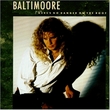| All Artists: Mahler, Masur, Nyp Title: Symphony 9 Members Wishing: 0 Total Copies: 0 Label: Elektra / Wea Release Date: 3/7/1995 Genre: Classical Style: Symphonies Number of Discs: 1 SwapaCD Credits: 1 UPC: 745099088224 |
Search - Mahler, Masur, Nyp :: Symphony 9
 | Mahler, Masur, Nyp Symphony 9 Genre: Classical
It's very hard to the New York Philharmonic to turn in a bad performance of a Mahler symphony. They simply know the music too well. So this Ninth is very well played, and well recorded too. Kurt Masur's interpretation is i... more » |
Larger Image |
CD DetailsSynopsis
Amazon.com It's very hard to the New York Philharmonic to turn in a bad performance of a Mahler symphony. They simply know the music too well. So this Ninth is very well played, and well recorded too. Kurt Masur's interpretation is interesting, in that he throws the weight of the work onto the finale. The problem with this is that the first movement, considered by many to be Mahler's greatest symphonic achievement, is severely underplayed as a result. Whether this approach works or not will be a highly personal matter, but Masur's ideas deserve respect. --David Hurwitz Similar CDs
Similarly Requested CDs
|
CD ReviewsDismal Rupert Stone | Timbucktoo | 07/16/2001 (1 out of 5 stars) "I endured this interpretation in concert as well as on CD and I can confidently say it is by far and away the weakest Mahler 9 in the canon. Masur's ghastly reading undermines the extraordinary first movement, reducing it to a soporific disaster. Repressing his own performance doesn't come close to summing it up - I was disgusted by the approach, absolutely vile. The middle movements were less enterprising: the second, a Landler movement, is awash with the grotesque, a recurrent feature of Mahler. Masur seems to totally ignore it, letting more or less everything by in this appaling narrow minded performance. The third is again weak and lacks the intense beauty of other recordings, such as Klemperer or Rattle. As for the last movement, it is saccharine and is very much hammed up pain, to the point of ludicrous hysteria. The saving grace of bad readings is often the orchestra and this was certainly the case with the NYP under Bernstein, especially in his woeful approach to Mahler's Sixth symphony. Sadly, they played with a total lack of feeling, so characteristic of this recording: the violin solos are metronomic and dull, the horrendous brass sections atrociously weak. They play with no intensity, drama or seeming understanding of the piece. It is a disastrous interpretation pitifully executed. Avoid at all costs." Not definitive, but the best I've found so far Daniel M. Forman | San Francisco, CA United States | 04/19/2005 (4 out of 5 stars) "This recording is absurdly underrated - so much so that I am tempted to wonder whether the other reviewers actually bothered listening to the music. True, the recording is not perfect, nor is this the most impassioned reading of this powerful symphony, but neither does it allow itself to be dragged into the ground, as do so many other recordings. Additionally, the New York Philharmonic plays with great precision and power throughout, giving this recording an edge over many others. It should be said that Masur is one of my favorite conductors: he has a knack for instilling sonic power in a piece without losing the musicality. At times, he is merely an excellent compromise (a trait which should not be under-valued), but usually I find his interpretations to be a combination of opposing viwes that exceeds either (his recording with the NYPO of Bruckner's 4th symphony is the only one I've heard in which I felt that the first movement was really right in every respect, neither too loud and brass heavy, and thereby un-melodic [as in the CSO/Solti reading], nor too muted and over-shaped, as in many European recordings I've heard). Masur's interpretation of Mahler's 9th takes a much more brisk pace in the first movement than other recordings I have heard. This can be seen as glossing over, but I find that any slower tempi drag terribly and lose their intensity (Michael Tilson Thomas's otherwise excellent performances with the San Francisco Symphony were guilty of this: the first movement felt as though the orchestra were wearing lead boots). The faster tempo allows the movement to maintain a flowing, natural feel that is crucial in any music: a plodding tempo can be the saddest death of an otherwise great performance, and Masur does not allow this to happen. The inner movements keep the flowing feel, and their interpretation is not patricularly controversial. The NYPO perform admirably, with the brass particularly shining in the third movement. Precision is crucial here, and the orchestra negotiates the challenging counterpoint with great dexterity; an especially incredible feat given the fast tempo. The final movement is perhaps one of the greatest adagios in all of the symphonic literature; maybe one of the most beautiful pieces of music ever written. Masur does not disappoint. He delivers a performance that has on several occasions brought tears to my eyes. The flaws in this movement have nothing to do with the conductor: this movement exposes the one area in which the NYPO falls short of ideal. The strings are easily the orchestras weak point; they have a very cold sound. They do not have the "living" quality that the great string sections do (Berlin, Vienna, Chicago, San Francisco). While the sheer writing of this movement is of such great quality that virtually any string section can be heart-rending, the lack of warmth in the strings keeps this reading from transcendence. The brass in this recording are perfect. The woodwinds are sublime. The strings are not the world's best. The overall precision of the orchestra is virtually unmatched, and their transparency of sound is second to none. Masur leads them all through a truly excellent performance of this masterpiece." Problems yes, but still very satisfying! Daniel M. Forman | 02/07/2000 (4 out of 5 stars) "Listen to the last movement. For that movement alone- there is simply no comparison to the NYPO!"
|

 Track Listings (4) - Disc #1
Track Listings (4) - Disc #1


















